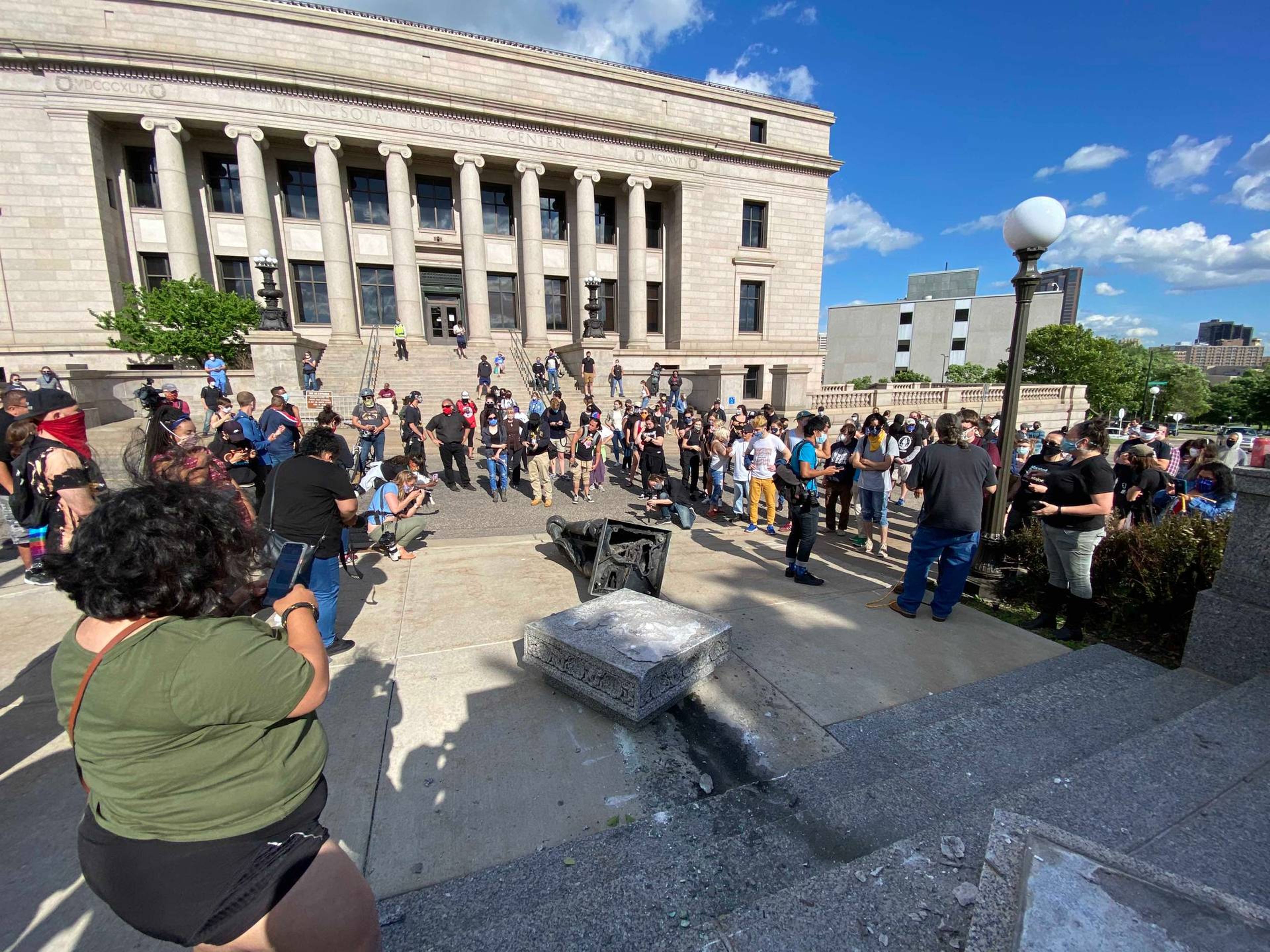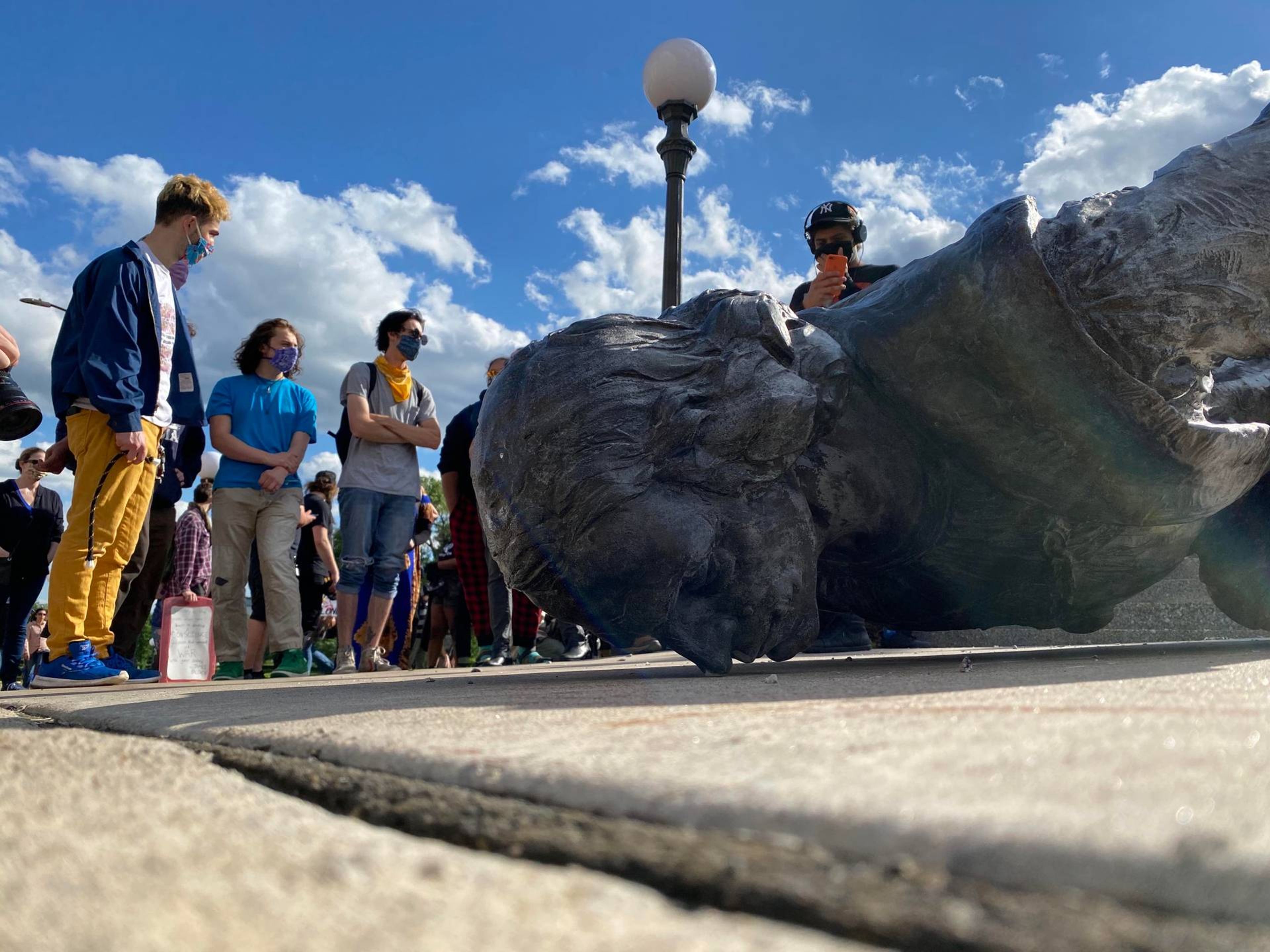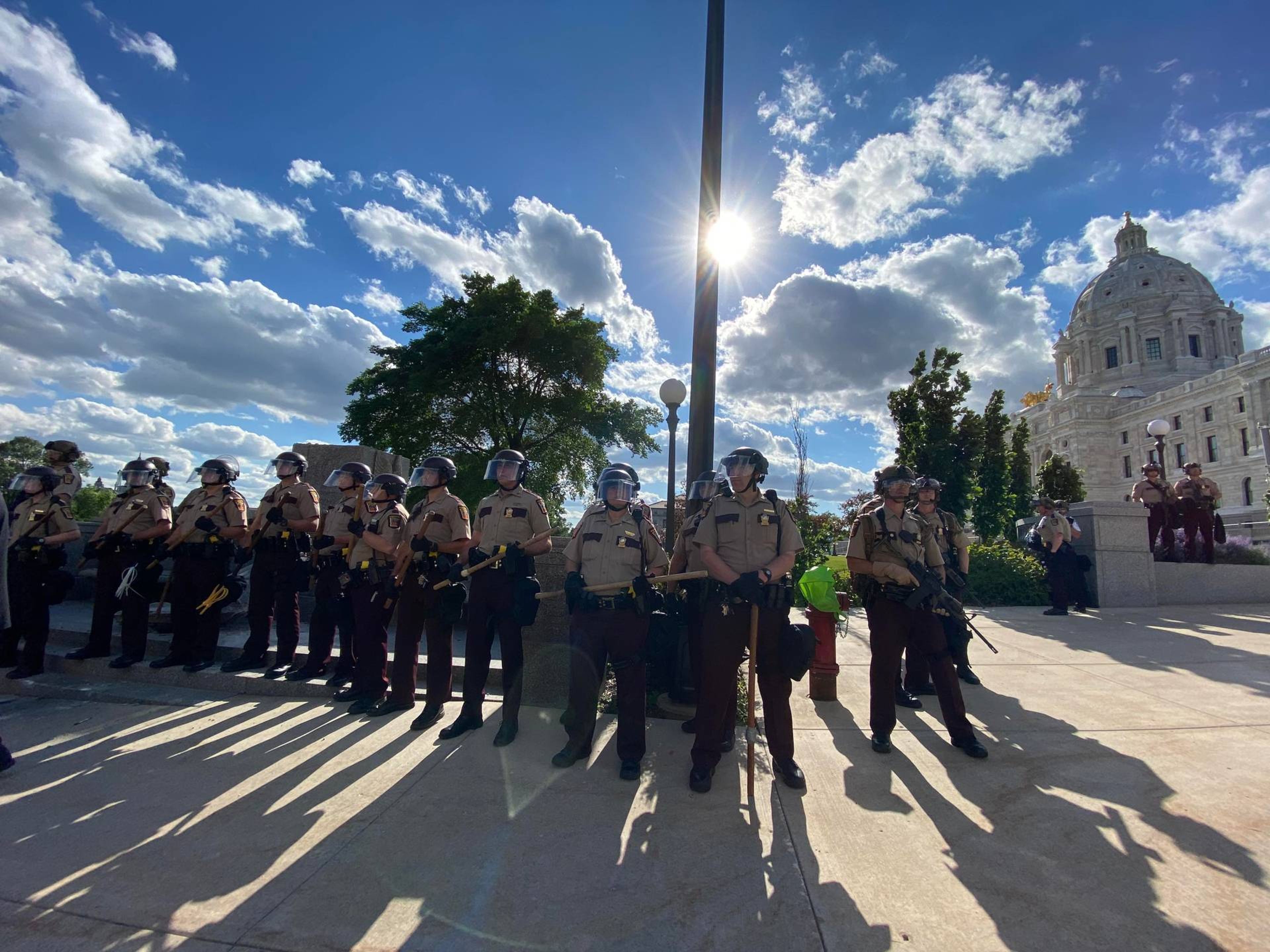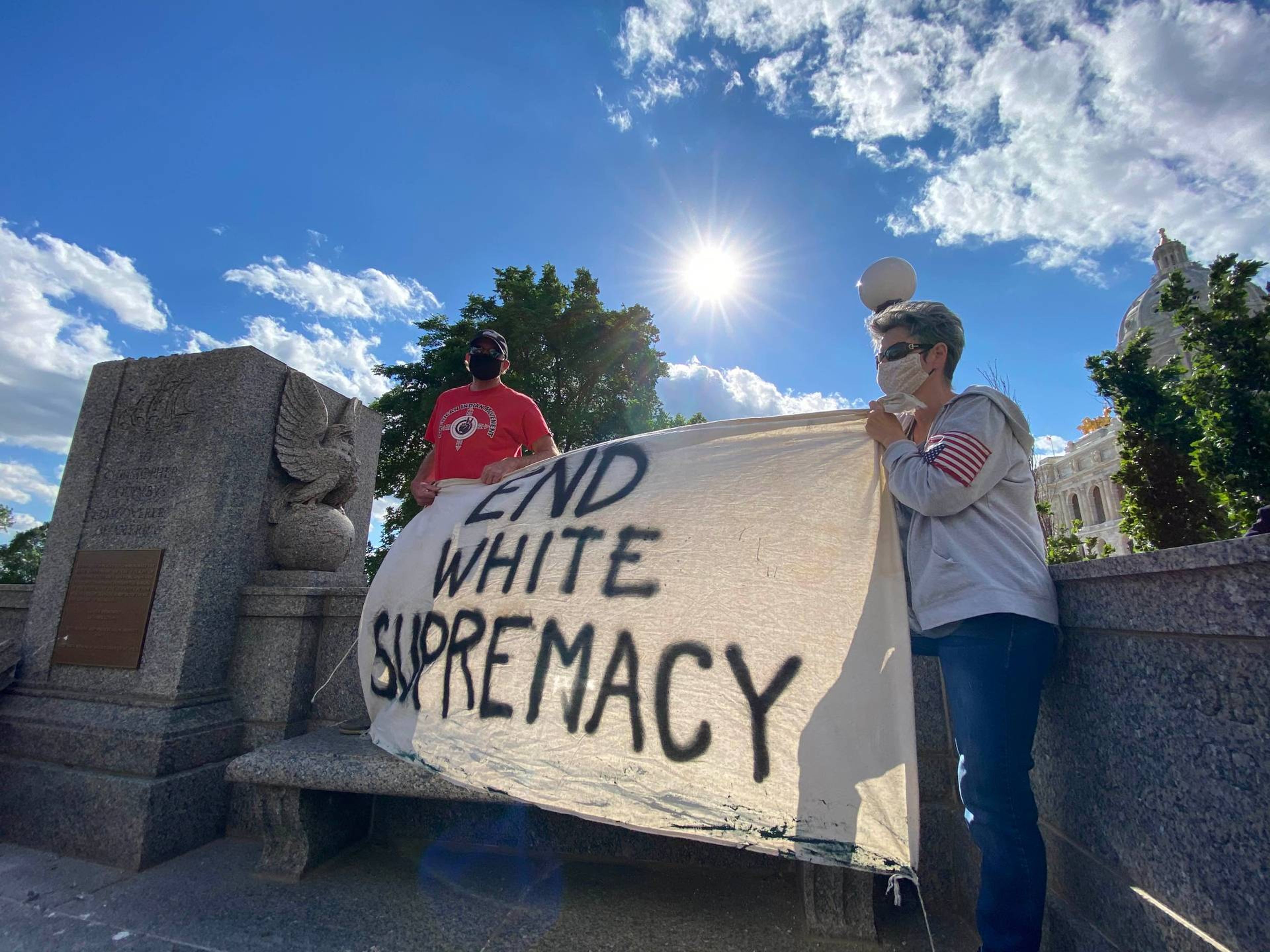Minnesota's Special Session Will Address Criminal Justice Reforms
Lawmakers vow to act after the police killing of George Floyd.
The special session of the Minnesota Legislature was initially necessary for the governor to extend his emergency powers during the COVID-19 pandemic. But with the police killing of George Floyd, criminal justice is front and center. In a sign of growing attention on that topic, protesters toppled the statue of Christopher Columbus on the Capitol Mall on June 11, 2020.

"We did it because it had to be done and it was here for far too long. That's a slap in the face to all Native people and all people of color," said Mike Forcia from the American Indian Movement as the statue came down.

Lt. Governor Peggy Flanagan, who's the highest ranking Native American office holder in the U.S. added, “ I’m not going to perform for folks. I'm not going to feign sadness. I'm not going to shed a tear over the loss of a statue honoring a man who, by his own admission, sold 9- and 10-year-old girls into sex slavery."

Some questioned why authorities didn't step in to stop the statue from coming down. Public Safety Commissioner John Harrington said troopers were not able to get out there in time, but warnings of the action were well-known on social media for some time.

Meanwhile, Gov. Tim Walz and Democratic leaders stood together, saying that an agenda aimed at changing law enforcement practices is ready to go. “The world saw the worst of Minnesota three weeks ago. And this group is committed to making sure the world sees the best of Minnesota."
Other state legislators echoed the governor's resolve. Senate DFL Assistant Minority Leader Jeff Hayden asked, “How many Black men and women have to die until an urgent response is warranted in our colleague's eyes?" Rep. Rena Moran (DFL-St. Paul) added, “We have to do transformational work, we have to find justice." Rep. Muhamud Noor (DFL-Minneapolis) declared, “George Floyd was murdered in the hands of Minneapolis police. My constituents are demanding action.” Sen. Bobby Joe Champion (DFL-Minneapolis) noted, “We have had challenges in getting Senate Republicans to hear our bills."
Senate Republicans reminded people that the legislature decides the agenda and length of special sessions, and they intend to be in for one week. Republican Senate Majority Leader Paul Gazelka said they will act on some criminal justice reform: “We’re going to move forward, and that all happened because the death of George Floyd and the video that gripped the whole country. I know when I first saw it, it absolutely stirred something in my soul that I would call righteous anger."
Senate Republicans aren't planning to pass as many bills as the Democratic controlled House. Chair Warren Limmer said, "We've also listened to some other members of the Minnesota House, particularly the POCI Caucus [People of Color and Indigenous Caucus], and we intend to put some of their ideas into our collection as well. We're requiring the reporting of deadly use of force as well." Leader Gazelka concluded, "There's a real desire to bring healing to Minnesota. And I said it last week - and I mean it - I think that Minnesota has the opportunity to lead the way for the whole nation for reconciliation of the races and some of the problems that we're addressing. Let's begin here."
George Floyd’s police killing has inspired countless artists across the globe to create murals in his honor, works that also call for justice and anti-racism reform. And that’s left a lot of people wondering what will happen to the works of art – many created on temporary surfaces such as plywood panels – when communities start to rebuild. Students and professors at the University of Minnesota have created an online database that aims to catalog these expressions so they can be studied for years to come.
Taken 100 years apart, a video that captured ex-police officer killing George Floyd bears an eery resemblance to a photograph of three Black men who were lynched in Duluth in 1920. Twin Cities PBS Senior Producer Daniel Bergin reflects on what the images – one moving, one still, both disturbing – say about Minnesota’s long history of systemic racism.
Along with other urban centers across the country, the Twin Cities have a history of racially discriminatory housing covenants that prevented people of color from buying homes in certain neighborhoods. That history ripples in the present-day affordable housing crisis: By limiting opportunities for home ownership, people of color were stripped of one key way to build equity over time. Discover more in “Mapping the Roots of Housing Disparities in Minneapolis.”
